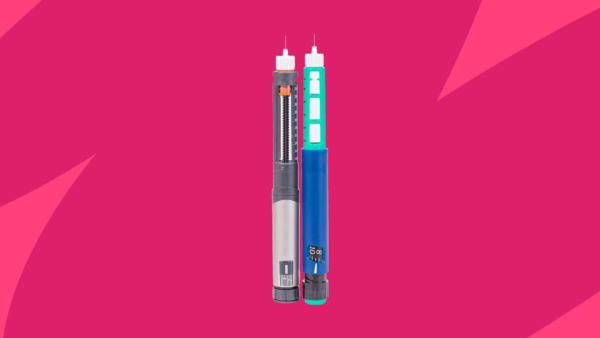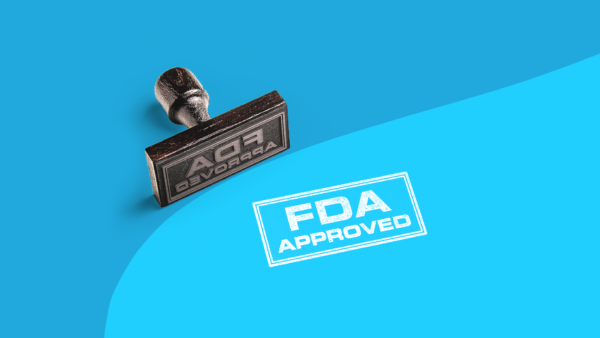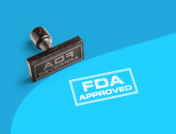Common Enbrel side effects | Serious side effects | Infection | Neurological disorders | How long do side effects last? | Warnings | Interactions | How to avoid side effects
Enbrel is a brand-name prescription drug used for the treatment of rheumatoid arthritis, psoriatic arthritis, plaque psoriasis, ankylosing spondylitis, and polyarticular juvenile idiopathic arthritis. In all these conditions, pain, swelling, and tissue damage occur when the body’s immune system mistakenly attacks healthy tissues in the body such as skin or the soft tissues in the joints. The active ingredient in Enbrel is etanercept, a monoclonal antibody that suppresses the immune system. By shutting down the inflammatory process, Enbrel can relieve the symptoms and slow the progress of these autoimmune conditions. Side effects can be a problem, particularly in drugs like Enbrel that suppress the immune system. The immune system, after all, is the body’s main line of defense against infection and cancers. To take Enbrel or any immunosuppressant safely, people should know what problems to look out for, what to avoid, and when to get help.
RELATED: What is Enbrel?
Common side effects of Enbrel
The most common side effects of Enbrel are:
- Infections, especially upper respiratory infections like colds and flu
- Redness, swelling, pain, or itching at the injection site
- Diarrhea
- Skin rash
- Itching
- Fever
- Hives
Serious side effects of Enbrel
The most serious side effects of Enbrel include:
- Severe infections
- Infections that can happen with a weakened immune system
- Tuberculosis
- Reactivation of hepatitis B
- Swollen lymph nodes and sarcoidosis
- Malignancies (lymphoma, leukemia, and skin cancers)
- Neurological disorders
- Worsening of congestive heart failure
- Low white blood counts
- Inflamed optic nerve causing sight problems
- Severe hypersensitivity reactions such as serious skin reactions, lupus-like syndrome, and autoimmune hepatitis
- Inflamed blood vessels
- Lung disease
Enbrel and infection
All immunosuppressants make the body more vulnerable to infections. In clinical trials, 81% of people taking Enbrel experienced infections. This is similar to the rate of infection for other medications that suppress the immune system. In the same trials, 39% of people taking a placebo also had infections. For most people taking Enbrel, these were infections like colds, the flu, and sinus infections (sinusitis).
However, severe and even life-threatening infections are possible when taking Enbrel. Opportunistic infections, that is, infections that are usually seen only in people whose immune system is suppressed, are also possible. Anyone taking Enbrel should be aware of symptoms of possible severe infections so they can get timely medical attention.
Enbrel and neurological disorders
Enbrel belongs to a class of drugs called tumor necrosis factor blockers (TNF blockers). All TNF blockers, including Enbrel, can cause or worsen nervous system demyelinating disorders. These disorders, including multiple sclerosis, demyelinating optic neuritis, Guillain-Barre syndrome, and transverse myelitis, are caused by inflammation around the nerves that slowly destroys their protective myelin sheath. As the myelin sheath wears away, electrical signals passing through the nerves grow weaker, eventually causing muscle weakness, paralysis, or blindness in the case of optic neuritis. Fortunately, new-onset or worsening of neurological disorders is comparatively rare in people taking Enbrel, affecting less than 0.1% of people taking the drug. Still, healthcare providers will be cautious about prescribing Enbrel to anyone who is already diagnosed with one of these disorders.
How long do Enbrel side effects last?
For most people, Enbrel’s side effects will be mild and manageable. Many people will notice that they are getting colds or the flu more often. These will go away as they normally do. Injection site reactions like redness, swelling, pain, or itching are another common problem. They, too, will get better in a few days. Cold packs or over-the-counter pain medications can help.
Other side effects may last longer. Serious infections, malignancies, blood disorders, or allergic reactions will require medical treatment and could take weeks or even months to resolve. Some of the worst side effects of Enbrel such as neurological disorders or worsening of heart failure may have long-term or even lifelong complications.
Enbrel contraindications and warnings
All drugs that suppress the immune system may cause serious problems in some people. Before taking Enbrel, people should know if they have any medical conditions that may make Enbrel treatment more hazardous.
Abuse and dependence
The U.S. Food and Drug Administration (FDA) does not classify Enbrel as a drug that can cause abuse or dependence. Stopping Enbrel will not cause withdrawal symptoms.
Overdose
In clinical trials, no adverse effects were observed when people were given twice the recommended adult dose. However, if too much Enbrel or any other prescription drug is taken, always call a poison helpline or get emergency medical treatment.
Restrictions
People who have hypersensitivity reactions to etanercept or any of its inactive ingredients cannot take Enbrel. People with latex allergies should be aware that the needle protectors on the Enbrel SureClick autoinjector, Enbrel Mini cartridge pen injector, and the prefilled syringe are made of rubber. People with latex allergies can use Enbrel stored in vials for use with regular needles and syringes.
As might be expected, Enbrel is avoided or used with caution in people who need a fully-functioning immune system. People with sepsis are at risk of dying when taking immunosuppressants, so Enbrel is prohibited in these patients. Enbrel treatment will not be started in people with active infections, but most people who develop mild infections while on Enbrel can continue to take the medicine with extra monitoring. Because of the risk of infection or cancer, healthcare providers will be cautious about prescribing Enbrel to people:
- At risk for infection
- A history of chronic or recurrent infections
- At risk for opportunistic or fungal infections
- At risk for tuberculosis infection
- With a latent tuberculosis infection
- With a latent hepatitis B infection (HBV carrier)
- With a history of cancer
- At risk for cancer
- With advanced or poorly controlled diabetes mellitus
Because Enbrel can worsen certain medical conditions, Enbrel is used cautiously in people with:
- Congestive heart failure
- Demyelinating nervous system disorders such as multiple sclerosis or optic neuritis
- Bone marrow suppression
- History of blood disorders
Pregnancy and nursing
Pregnant women are prescribed Enbrel in all stages of pregnancy. There is no clinical evidence that etanercept causes birth defects or affects pregnancy, but this is still being studied. Women who are pregnant or may become pregnant should get medical advice from a healthcare professional before taking Enbrel.
In general, healthcare professionals believe etanercept is low-risk in women who are breastfeeding. Etanercept is present in minimal amounts in human breast milk but, as a large protein, is probably broken down in an infant’s stomach before it can be absorbed. There are no controlled studies of Enbrel’s effects on lactation or a nursing infant, but anecdotal case evidence has shown no problems. Still, women who are breastfeeding may want to weigh the pros and cons of taking Enbrel with a healthcare provider.
Children
Enbrel is FDA-approved to treat children as young as 2 years of age for moderate to severe juvenile idiopathic arthritis and as young as 4 years of age for psoriasis. Enbrel has not been determined as safe and effective in children younger than 2 years or for any other condition.
For parents considering Enbrel for their children, it is important to know that live vaccines should not be given to people taking this medication. There’s a risk that the weakened but live pathogen in the vaccine could develop into an active infection in people taking medicines that suppress the immune system. Not all vaccines are live vaccines. In children, the most common live vaccines given are measles, mumps, rubella, varicella (chickenpox), rotavirus, and the nasal spray form of the flu vaccine. In addition, Enbrel may decrease the effectiveness of other types of vaccines, though this hasn’t been proven. To prevent serious infections, it’s important to be up-to-date with as many vaccines as possible before starting immunosuppressive medications. Parents with children on a vaccination schedule will need to weigh the pros and cons of taking Enbrel or any other immunosuppressant.
Seniors
In clinical trials, Enbrel was effective and safe in people older than 65 years of age. However, people older than 65 tend to have more infections than younger adults, so healthcare providers will monitor seniors more closely for infections.
Enbrel interactions
Enbrel has some drug interactions, but most are related to Enbrel’s suppression of the immune system. These drug interactions either raise the risk of infection or suppress the immune system even more.
- Live vaccines: Live vaccines contain weakened but living pathogens. There’s a risk that they may cause an active infection when given to people taking an immunosuppressant like Enbrel.
- Immune-suppressing drugs: Combining other immunosuppressants with Enbrel will further weaken the immune system, putting people at an increased risk of infection, severe infection, and cancer. Healthcare providers will avoid other monoclonal antibodies, or biologics, that also suppress the immune system such as Orencia (abatacept) and Kineret (anakinra). Other immune-suppressing drugs that will be avoided or used with caution include corticosteroids, disease-modifying anti-rheumatic drugs (DMARDs such as sulfasalazine), and immune-suppressing anticancer drugs such as cyclophosphamide.
How to avoid Enbrel side effects
Many people taking Enbrel will experience side effects. The most common are mild infections and injection site reactions. There are some steps people can take to minimize common and serious side effects.
1. Inform the healthcare provider about infections
Before getting an Enbrel prescription, make sure that you do not currently have an infection. Tell the healthcare provider about any known or suspected infections. The healthcare provider will especially need to know if you’ve ever had tuberculosis or hepatitis B. Also make sure you inform the prescriber about any open cuts, diabetes, or HIV. If you get lots of infections or they keep coming back, the prescriber needs to know this, too. The prescriber will ask where you grew up, where you’ve traveled, or if you’ve been around anyone with chickenpox or other infections. This is to find out if you could have been exposed to anything that could cause a serious infection when the immune system is suppressed.
Finally, report any symptoms of an infection such as:
- Fever, chills, or sweats
- Cough
- Sore throat
- Stuffy nose
- Shortness of breath
- Weight loss
- Skin sores or skin areas that are red or painful
- Diarrhea
- Stomach pain
- Burning during urination
2. Make sure the healthcare provider knows about all medical conditions
The first step in avoiding side effects is to make sure the healthcare provider has a complete medical history. For Enbrel, the medical professional will need to know about:
- Any nervous system disorder
- Congestive heart failure
- Any upcoming surgery
- Any recent or upcoming vaccines
- Allergies, including rubber or latex
- Pregnancy or pregnancy plans
- Breastfeeding or breastfeeding plans
Also tell the prescribing healthcare provider about all the prescription drugs, over-the-counter medications, and dietary supplements being taken. 3. Take Enbrel as directed
Take Enbrel as instructed. Don’t increase or decrease the dose. To gain the maximum benefit from this drug, take each weekly subcutaneous injection as scheduled.
4. Read the step-by-step instructions
Make sure that doses are injected properly. Enbrel is packaged with detailed and illustrated instructions for use. Many people find it useful to review these instructions before each weekly injection.
5. Choose a different site for each injection
Find out which areas of the body are the right ones to inject Enbrel, then choose a different one of those areas to inject each time. When it’s time to reuse one area of the body, choose a different spot in that area.
6. Take extra precautions
Since people who take medications that affect the immune system are at greater risk for infections, take extra precautions to prevent exposures. Wash your hands or use hand sanitizer often, limit your exposure to people who are sick or might be sick, wear a mask when needed, and stay up-to-date on vaccines that can prevent serious illness.
Related resources for Enbrel side effects:
- Enbrel, Epocrates
- Enbrel prescribing information, U.S. National Library of Medicine
- Etanercept, Drugs and Lactation Database
- Etanercept drug summary, Prescriber’s Digital Reference











